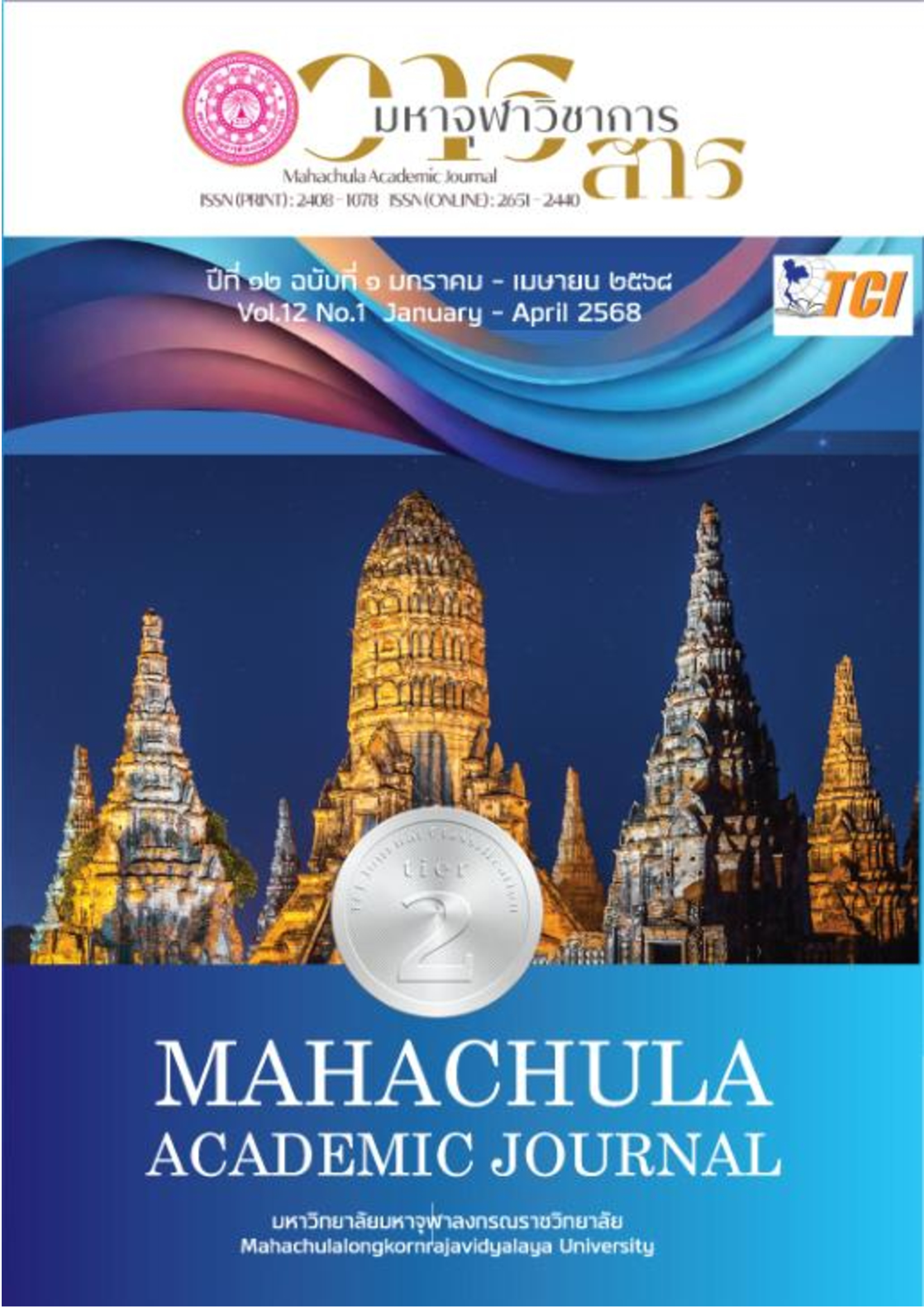A New Way of Expressing Gratitude in Thai Society
Main Article Content
Abstract
This Research Article the following objectives: (1) To study the expression of gratitude in Buddhist scriptures, (2) To study the old way of expressing gratitude of Thai society, and (3) To study a new way of expressing gratitude in Thai society. It is a qualitative research and applied in the field by interviewing 12 key informants Then, the information obtained from the interview was analyzed, tested, and summarized.
The research study found that (1) Gratitude means knowing the kindness that others have done. It is considered a virtue of goodness or an important foundation of human beings because humans must always have relationships or are related to others. Human life can survive because they are supported and cared for by benefactors such as parents, teachers, relatives, etc. In terms of the mind, humans are instilled with morality in the value of the mind from other people, such as parents, etc. Therefore, humans have morality and good attitudes to create benefits for themselves and the community, which is considered an important principle for living a prosperous and progressive life. Gratitude is an important component of humanity. (2) The old way of expressing gratitude in Thai society has the same form of expressing gratitude as in Buddhism. This is because all human beings live together in a society where they must depend on each other. Therefore, human beings must know how to be grateful and think of repaying the kindness of those who have done them favors, such as parents, teachers, relatives, national institutions, religions, kings, as well as helping society as a whole with kindness and compassion. Doing so will bring happiness, prosperity, and auspiciousness to one's life. (3) The new way of expressing gratitude in Thai society involves adapting traditional expressions of gratitude to fit the digital age, aligning with the rapid changes of the modern world. Today, gratitude can be expressed in more diverse ways than in the past, thanks to the power of social media, which has a significant influence on our daily lives.The Buddhist principle of gratitude remains a timeless value worth preserving, but the methods of expressing it can be adjusted to suit contemporary times. This includes utilizing technology and innovations such as computers, smartphones, the internet, and various applications to facilitate communication, work, and transactions. Examples include online shopping platforms like Lazada and Shopee, as well as automated services. These modern tools enable people to stay connected to the globalized world while maintaining and expressing the core values of gratitude in ways that resonate with modern society.
Article Details

This work is licensed under a Creative Commons Attribution-NonCommercial-NoDerivatives 4.0 International License.
References
พระครูศรีสุตโสภณ (เงิน ชาตเมธี). “ความกตัญญูกตเวทีในฐานะคุณธรรมค้าจุนสังคมจากมุมมองพระพุทธศาสนา”. วิทยานิพนธ์พุทธศาสตรมหาบัณฑิต. บัณฑิตวิทยาลัย: มหาวิทยาลัยมหาจุฬาลงกรณราชวิทยาลัย, ๒๕๔๙.
พระมหาบุญกอง คุณาธโร (มาหา). “การศึกษาเชิงวิเคราะห์ความกตัญญู (กตญฺญุตา) ในพระพุทธ ศาสนาเถรวาท”. วิทยานิพนธ์พุทธศาสตรมหาบัณฑิต. บัณฑิตวิทยาลัย: มหาวิทยาลัยมหาจุฬาลงกรณราชวิทยาลัย, ๒๕๔๘.
มหาจุฬาลงกรณราชวิทยาลัย. พระไตรปิฎกภาษาไทย ฉบับมหาจุฬาลงกรณราชวิทยาลัย. กรุงเทพ-มหานคร: โรงพิมพ์มหาจุฬาลงกรณราชวิทยาลัย, ๒๕๓๙.
สมเด็จพระมหาสมณเจ้ากรมพระยาวชิรญาณวโรรส. มงฺคลตฺถทีปนี (ปฐโม ภาโค). พิมพ์ครั้งที่ ๑๘. กรุงเทพมหานคร: โรงพิมพ์มหามกุฏราชวิทยาลัย, ๒๕๖๐.
สุวรรณฐา ลึม. “แนวทางส่งเสริมความกตัญญูกตเวทีในสังคมไทย”. วิทยานิพนธ์พุทธศาสตรมหาบัณฑิต. บัณฑิตวิทยาลัย: มหาวิทยาลัยมหาจุฬาลงกรณราชวิทยาลัย, ๒๕๖๐.
Asst. Prof. Dr Sanu Mahatthanadull and Dr. Sarita Mahatthanadull. “Human Behaviors in Promoting Balance of Family according to Buddhist Psychology”. Journal of MCU Peace Studies. Vol. 8 No. 1 (January-February 2020) : 21-31.
รุ่งฟ้า เกียรติพจน์. “ความกตัญญู คุณธรรมแห่งรักแท้ ที่ไม่ควรถูกลืมเลือน”. [ออนไลน์]. แหล่งที่มา: https://www.sustainablelife.co/news/detail/38 [๒๐ กันยายน. ๒๕๖๕].
สำนักงานราชบัณฑิตยสภา. “บุพการี”. [ออนไลน์]. แหล่งที่มา: http://legacy.orst.go.th/?knowledges=บุพการี-๑๓-กรกฎาคม-๒๕๕๒ [๑ ธันวาคม ๖๔].


